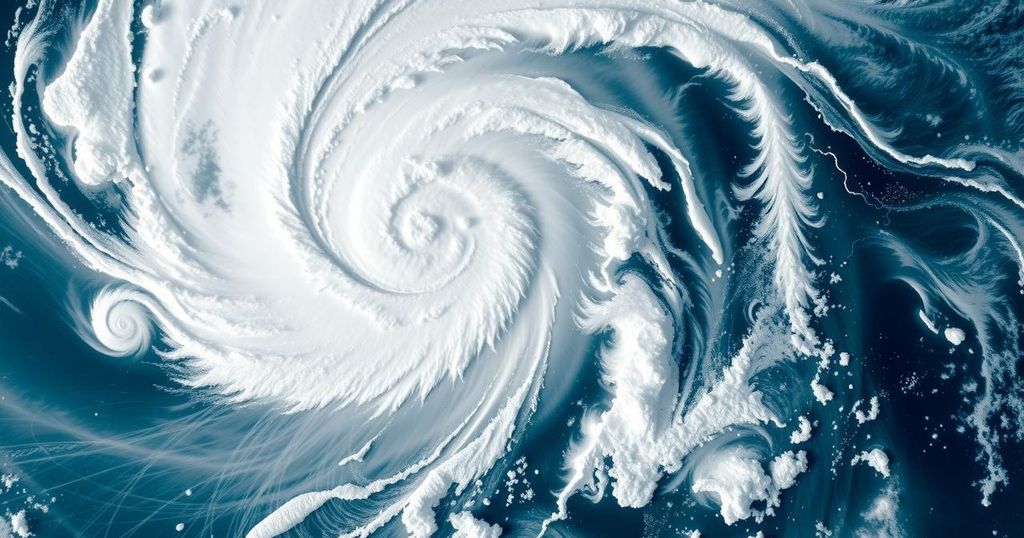Tropical Storm Dikeledi struck northern Mozambique after causing fatalities in Madagascar. The storm led the National Institute of Meteorology to issue flood warnings due to predicted heavy rainfall and strong winds. President Filipe Nyusi urged residents to take safety measures. Climate change is influencing storm intensity in the region.
Tropical Storm Dikeledi made landfall in northern Mozambique on Monday, having previously caused considerable devastation in Madagascar, where it resulted in three fatalities and instigated severe flooding in Mayotte. The storm gained strength as it approached Mozambique’s Nampula region, characterized by destructive winds and heavy rainfall, as reported by the French meteorological service Meteo-France.
The National Institute of Meteorology in Mozambique (INAM) has issued flood warnings, forecasting intense rainfall of up to 200 millimeters (approximately eight inches) within a 24-hour period, accompanied by wind gusts reaching 180 kilometers per hour (110 miles per hour). President Filipe Nyusi emphasized the necessity for residents to prepare for the storm by seeking shelter and securing ample food and water supplies, urging them to act swiftly to ensure their safety.
In Madagascar, Dikeledi impacted the northern region on Saturday, unleashing powerful winds and heavy rain that led to the fatalities and prompted warnings of potential further strikes along the island’s southwest coast as the storm progresses southward later this week. The incidence of such cyclones typically peaks in the Indian Ocean from November through March, with current surface water temperatures nearing 30 degrees Celsius (86 degrees Fahrenheit), exacerbating the storm’s intensity, a phenomenon attributed to global warming that is similarly recorded in the North Atlantic and Pacific regions.
Understanding the dynamics of tropical storms, particularly in regions like the Indian Ocean, is crucial given their seasonal patterns and escalating intensity due, in part, to climate change. Tropical storms typically occur from November to March, with rising sea surface temperatures increasing the potential for severe weather events. The impact of Tropical Storm Dikeledi in both Madagascar and Mozambique highlights the ongoing vulnerabilities faced by these regions, particularly concerning storm preparedness and response measures.
In conclusion, Tropical Storm Dikeledi has generated significant concern as it transitions toward Mozambique after wreaking havoc in Madagascar. The potential for severe flooding and damaging winds underscores the importance of timely warnings and community preparedness initiatives. As climate change continues to influence storm behavior, proactive strategies in disaster management and infrastructure resilience are essential to mitigate the impact of such natural disasters in vulnerable regions.
Original Source: www.barrons.com






